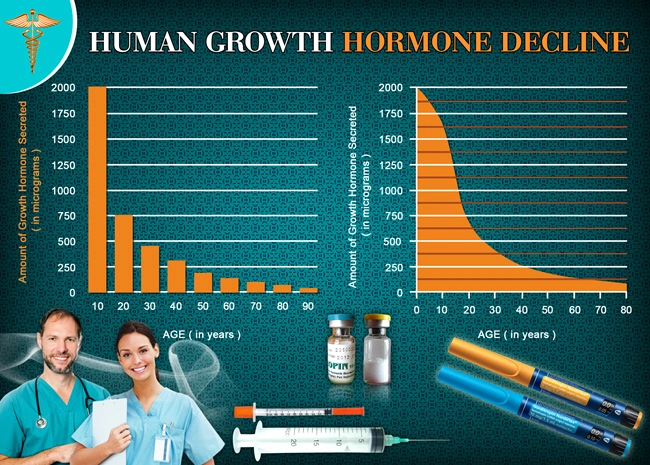
Introduction to Penile Vein Anatomy
The penis, a vital organ in male anatomy, is supported by a complex network of veins that play a crucial role in its function. The penile veins are responsible for draining blood from the penis, which is essential for maintaining its health and functionality. These veins are categorized into two main types: the deep dorsal vein and the superficial dorsal vein. The deep dorsal vein, located beneath the tunica albuginea, is the primary conduit for venous drainage from the corpora cavernosa, the erectile tissue of the penis. In contrast, the superficial dorsal vein, situated above the tunica albuginea, drains the skin and subcutaneous tissue of the penis.
Function of Penile Veins
The primary function of penile veins is to facilitate the outflow of blood from the penis, which is crucial for both the flaccid and erect states of the organ. During an erection, the veins play a pivotal role in maintaining the balance between blood inflow and outflow. When sexual arousal triggers the relaxation of smooth muscles in the penile arteries, blood rushes into the corpora cavernosa, causing the penis to become erect. Concurrently, the penile veins constrict, reducing blood outflow and helping to sustain the erection. Once sexual arousal subsides, the veins dilate, allowing blood to drain from the penis and return it to a flaccid state.
Common Disorders Related to Penile Veins
Several disorders can affect the penile veins, leading to various health issues. One of the most common conditions is venous leak, also known as veno-occlusive dysfunction. This disorder occurs when the penile veins fail to constrict properly during an erection, resulting in excessive blood outflow and difficulty maintaining an erection. Venous leak can be caused by various factors, including trauma, Peyronie's disease, and congenital abnormalities.
Another disorder associated with penile veins is varicose veins of the penis, a condition characterized by the enlargement and twisting of the superficial dorsal vein. While generally benign, varicose veins of the penis can cause discomfort and aesthetic concerns. In some cases, they may be indicative of underlying venous insufficiency, which requires medical attention.
Diagnosis and Treatment of Penile Vein Disorders
Diagnosing disorders of the penile veins typically involves a combination of physical examination, medical history review, and specialized tests such as penile Doppler ultrasound. This imaging technique allows healthcare providers to assess blood flow within the penile veins and identify any abnormalities.
Treatment for penile vein disorders varies depending on the specific condition and its severity. For venous leak, treatment options may include oral medications, such as phosphodiesterase type 5 inhibitors, which help improve blood flow and enhance the ability to achieve and maintain an erection. In more severe cases, surgical interventions like penile vein ligation or embolization may be considered to correct the underlying venous insufficiency.
For varicose veins of the penis, treatment is usually conservative, involving the use of compression therapy or sclerotherapy to reduce the appearance of the veins. In rare cases where the varicose veins cause significant discomfort or complications, surgical removal may be necessary.
Conclusion: The Importance of Penile Vein Health
Understanding the anatomy and function of penile veins is essential for maintaining overall penile health. Disorders affecting these veins can significantly impact a man's quality of life, particularly in terms of sexual function. By recognizing the signs of penile vein disorders and seeking appropriate medical care, men can address these issues effectively and maintain optimal penile health. Regular check-ups with a healthcare provider can help detect any potential problems early and ensure timely intervention, promoting a healthier and more fulfilling life.
Contact Us Today For A Free Consultation
Dear Patient,
Once you have completing the above contact form, for security purposes and confirmation, please confirm your information by calling us.
Please call now: 1-800-380-5339.
Welcoming You To Our Clinic, Professor Tom Henderson.

- Managing Penile Skin Conditions: Symptoms, Treatments, and Prevention Strategies [Last Updated On: February 21st, 2025] [Originally Added On: February 21st, 2025]
- Understanding the Psychological Toll of Penile Health Issues: A Comprehensive Overview for American Males [Last Updated On: March 1st, 2025] [Originally Added On: February 28th, 2025]
- Advancements in Penile Prostheses: Enhancing ED Treatment and Patient Satisfaction [Last Updated On: March 17th, 2025] [Originally Added On: March 17th, 2025]
- Penile Trauma: Emergency Care, Long-Term Management, and Latest Advances in Penis Science [Last Updated On: March 18th, 2025] [Originally Added On: March 18th, 2025]
- Testosterone's Crucial Role in Penile Health and Function for American Males [Last Updated On: March 19th, 2025] [Originally Added On: March 19th, 2025]
- Penile Enlargement: Safety, Efficacy, and Methods for American Males [Last Updated On: March 19th, 2025] [Originally Added On: March 19th, 2025]
- Penile Nerve Blocks: Enhancing Urological Surgery and Pain Management for American Males [Last Updated On: March 19th, 2025] [Originally Added On: March 19th, 2025]
- Optimal Penile Hygiene: Practices for Health and Well-being in American Males [Last Updated On: March 19th, 2025] [Originally Added On: March 19th, 2025]
- Lifestyle Factors Impacting Penile Health: Diet, Exercise, and More for American Males [Last Updated On: March 20th, 2025] [Originally Added On: March 20th, 2025]
- Understanding and Managing Penile Ulcers in American Males: Causes, Diagnosis, and Treatment [Last Updated On: March 20th, 2025] [Originally Added On: March 20th, 2025]
- Obesity's Impact on Penile Function: Vascular, Hormonal, and Psychological Effects [Last Updated On: March 21st, 2025] [Originally Added On: March 21st, 2025]
- Spinal Cord Injuries and Penile Function: Impacts and Management for American Males [Last Updated On: March 21st, 2025] [Originally Added On: March 21st, 2025]
- Chemotherapy's Impact on Penile Health: Effects, Management, and Long-term Considerations [Last Updated On: March 22nd, 2025] [Originally Added On: March 22nd, 2025]
- Medications and Penile Function: Impacts on American Males' Health [Last Updated On: March 22nd, 2025] [Originally Added On: March 22nd, 2025]
- Genetics of Penile Development: Insights and Advances for American Males [Last Updated On: March 22nd, 2025] [Originally Added On: March 22nd, 2025]
- Penile Vascular Health: Understanding, Preventing, and Treating Vascular-Related ED [Last Updated On: March 22nd, 2025] [Originally Added On: March 22nd, 2025]
- Penile Biopsy: Essential Diagnostic Tool for Urological Health in American Males [Last Updated On: March 22nd, 2025] [Originally Added On: March 22nd, 2025]
- Penile Skin Grafts: Indications, Procedures, and Outcomes for American Males [Last Updated On: March 22nd, 2025] [Originally Added On: March 22nd, 2025]
- Dietary Impact on Penile Health: Antioxidants, Omega-3s, and Nitrates [Last Updated On: March 23rd, 2025] [Originally Added On: March 23rd, 2025]
- Managing Penile Allergies: Symptoms, Diagnosis, and Effective Strategies for American Males [Last Updated On: March 23rd, 2025] [Originally Added On: March 23rd, 2025]
- Penile Prosthetics: Effective Solution for Severe Erectile Dysfunction in American Males [Last Updated On: March 23rd, 2025] [Originally Added On: March 23rd, 2025]
- Penile Ultrasound: Diagnosing Sexual Dysfunction in American Males [Last Updated On: March 24th, 2025] [Originally Added On: March 24th, 2025]
- Penile Girth's Impact on Sexual Satisfaction: Insights for American Males [Last Updated On: March 24th, 2025] [Originally Added On: March 24th, 2025]
- Understanding Penile Numbness: Causes, Diagnosis, and Treatment Strategies [Last Updated On: March 24th, 2025] [Originally Added On: March 24th, 2025]
- Chronic Diseases and Penile Health: Impacts and Management for American Males [Last Updated On: March 24th, 2025] [Originally Added On: March 24th, 2025]
- Penile Warts: Causes, Symptoms, Treatment, and Prevention for American Males [Last Updated On: March 24th, 2025] [Originally Added On: March 24th, 2025]
- Penile MRI: Advancing Diagnosis and Treatment in Men's Health [Last Updated On: March 24th, 2025] [Originally Added On: March 24th, 2025]
- Understanding Penile Rash: Types, Causes, and Effective Treatments for American Men [Last Updated On: March 25th, 2025] [Originally Added On: March 25th, 2025]
- Understanding Penile Discharge: Causes, Symptoms, and Treatment for American Males [Last Updated On: March 25th, 2025] [Originally Added On: March 25th, 2025]
- Penile Reconstruction: Techniques, Outcomes, and Psychological Impact on American Males [Last Updated On: March 25th, 2025] [Originally Added On: March 25th, 2025]
- Understanding and Managing Penile Sensory Neuropathy in American Males [Last Updated On: March 25th, 2025] [Originally Added On: March 25th, 2025]
- Hormonal Imbalances and Their Impact on Penile Health in American Males [Last Updated On: March 25th, 2025] [Originally Added On: March 25th, 2025]
- Understanding Penile Discoloration: Causes, Symptoms, and Treatment Options for American Males [Last Updated On: March 25th, 2025] [Originally Added On: March 25th, 2025]
- Neurological Disorders' Impact on Penile Function: Insights and Management Strategies [Last Updated On: March 26th, 2025] [Originally Added On: March 26th, 2025]
- Understanding Penile Lesions: Types, Causes, and Medical Interventions for American Males [Last Updated On: March 26th, 2025] [Originally Added On: March 26th, 2025]
- Penile Lymphatic System: Functions, Disorders, and Health Management [Last Updated On: March 26th, 2025] [Originally Added On: March 26th, 2025]
- Understanding and Managing Penile Pain: Causes, Diagnosis, and Treatment Strategies [Last Updated On: March 26th, 2025] [Originally Added On: March 26th, 2025]
- Penile Blood Tests: A Vital Tool for Diagnosing Systemic Health Issues in Men [Last Updated On: March 26th, 2025] [Originally Added On: March 26th, 2025]
- Penile Piercings: Health Risks, Types, and Medical Advice for American Males [Last Updated On: March 26th, 2025] [Originally Added On: March 26th, 2025]
- Penile Arteries and Erection Health: A Comprehensive Guide for American Males [Last Updated On: March 26th, 2025] [Originally Added On: March 26th, 2025]
- Understanding Penile Swelling: Causes, Diagnosis, and Management for American Males [Last Updated On: March 27th, 2025] [Originally Added On: March 27th, 2025]
- Exploring Penile Sensitivity: Impact on Sexual Health and Function in American Males [Last Updated On: March 27th, 2025] [Originally Added On: March 27th, 2025]
- Understanding Penile Bleeding: Causes, Symptoms, and Emergency Care for American Males [Last Updated On: March 27th, 2025] [Originally Added On: March 27th, 2025]
- Penile Nerve Anatomy: Impact on Sexual Health and Function in American Men [Last Updated On: March 27th, 2025] [Originally Added On: March 27th, 2025]
- Penile Injuries: Types, Impact on Sexual Function, and Importance of Timely Treatment [Last Updated On: March 27th, 2025] [Originally Added On: March 27th, 2025]
- Radiation Therapy's Impact on Penile Health: Effects, Management, and Future Research [Last Updated On: March 27th, 2025] [Originally Added On: March 27th, 2025]
- Understanding Penile Itching: Causes, Symptoms, and Effective Treatments [Last Updated On: March 28th, 2025] [Originally Added On: March 28th, 2025]
- Understanding Penile Lumps: Types, Causes, and Management for American Males [Last Updated On: March 29th, 2025] [Originally Added On: March 29th, 2025]
- Penile Health and Fertility: Insights and Management for American Males [Last Updated On: March 29th, 2025] [Originally Added On: March 29th, 2025]
- Penile Sores: Causes, Symptoms, and Medical Interventions for American Males [Last Updated On: March 30th, 2025] [Originally Added On: March 30th, 2025]
- Understanding Penile Edema: Causes, Diagnosis, and Treatment Strategies for American Males [Last Updated On: March 30th, 2025] [Originally Added On: March 30th, 2025]
- Penile Health and Overall Well-being: Insights and Strategies for American Males [Last Updated On: March 30th, 2025] [Originally Added On: March 30th, 2025]









